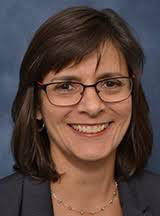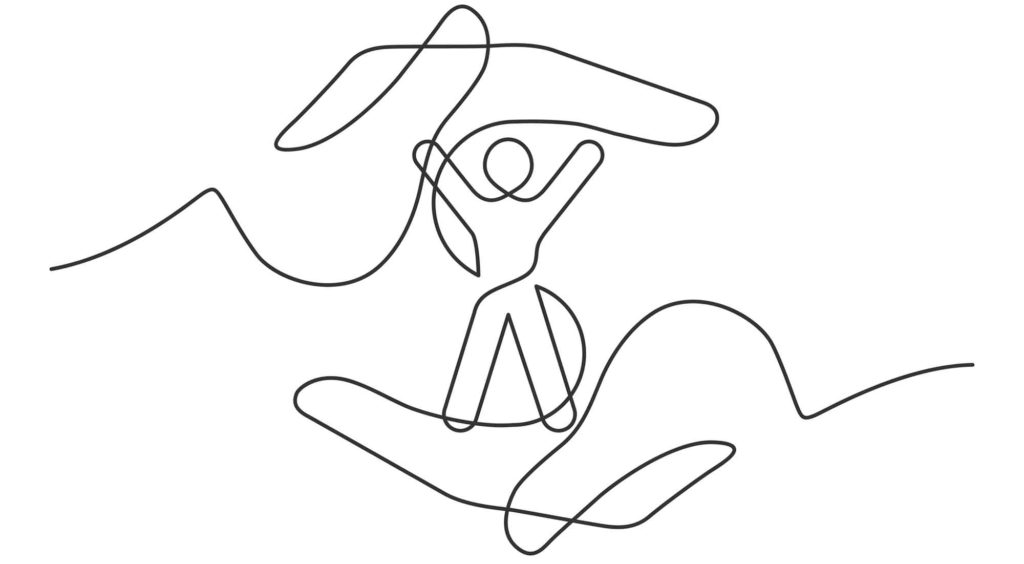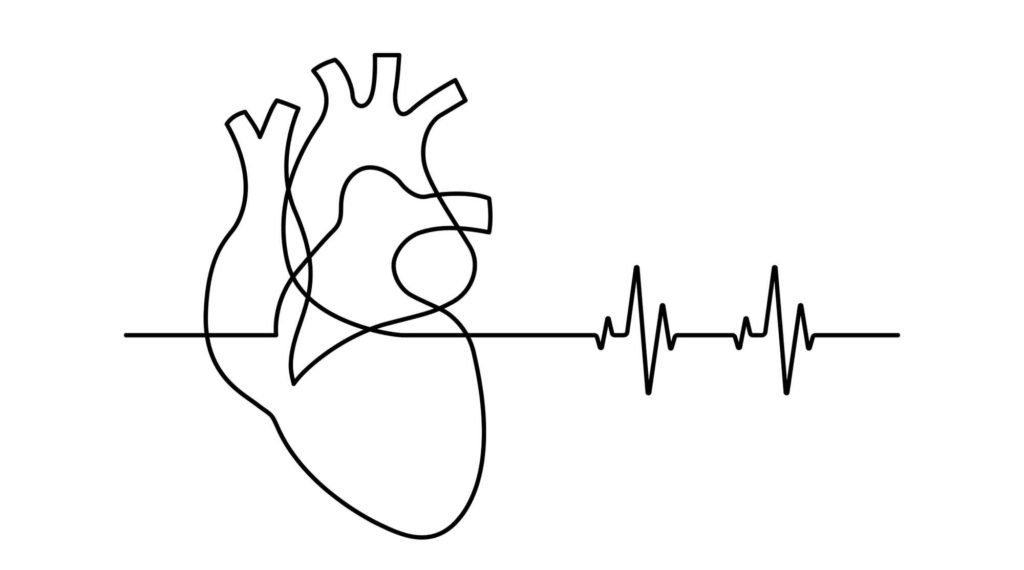Government Relations
Science in Service: Leveraging Psychological Science to Put the “Public” in Public Health
Public health professionals work to prevent injury and illness and promote health in neighborhoods and communities. Psychological science plays a key role in making that work effective.

I am a senior health scientist at the U.S. Centers for Disease Control and Prevention (CDC). In this role, I supervise a multidisciplinary team of staff consisting of public health lawyers, a health geographer, health scientists, policy advisors, and public health advisors. I also serve as CDC’s lead and agency point of contact for our rural work. My team works on a variety of activities including public-private partnerships that can help advance CDC’s mission, projects with CDC’s Public Health Law Program, training activities for agency staff on using policy options to improve the public’s health, translating material for nonscientific audiences, and rural-focused projects. I am also a member of our office’s leadership team.

My journey began at Hollins University (then Hollins College), a women’s liberal arts college in the Blue Ridge mountains, where I received a bachelor’s degree in psychology in 1988. I knew I wanted to pursue a PhD and work with children and adolescents, but I couldn’t find a specialization that seemed to fit. So, I worked in hospital administration for a few years, did volunteer hotline counseling and, later, obtained a university job helping manage clinical trials for mood and anxiety disorders. Since the university had a tuition benefit, I completed a master’s program in psychological services part-time. I later received my PhD in school, community, and child clinical psychology.
When I was doing my doctoral program course work, there seemed to be two obvious career paths—clinical work or higher education. I had ruled out full-time clinical work as an option because it didn’t seem like the best fit for me. Upon graduating, I held an academic appointment at a university, teaching undergraduate and master’s-level courses and advising/mentoring students. I love teaching, but I really don’t like grading, so I began looking for an academic position that was more permanent (not year-to-year). CDC’s Division of Violence Prevention (DVP) was hiring behavioral scientists, and I eventually sent in my CV and personal statement. I was happy and intrigued when DVP contacted me about an interview for one of the behavioral scientist positions. I came to Atlanta for the interview, and I was hooked. A few months later, my family packed up and relocated to Atlanta from Philadelphia. I haven’t looked back since.
Leveraging psychological science on the job
Psychological science is critical to most of the work I do, starting with my role as a supervisor. I believe that my training in psychology has made me a compassionate supervisor—for example, by familiarizing me with the industrial/organizational psychology literature. Herzberg differentiated between motivating factors, such as having interesting and challenging work, and hygiene factors, such as pay and benefits. I focus my time on making sure my team is doing interesting work, feels they are making contributions, and feels empowered. I do not micromanage. I get to know my team and what motivates them. I frequently tell team members that they really need to make time for the things that are important, such as family. And I model that behavior, so they know it isn’t just talk.

Within CDC, our office provides a customer service role. We have functional expertise (e.g., knowledge translation, systems thinking), and we bring that to the rest of the agency. Oftentimes, this requires understanding boundaries and having good ones. I may not be the expert in a particular topic area, such as cancer prevention. But I can bring innovative ways of thinking to that work. As I work with my colleagues across the agency, I make clear that they are the experts in that topic, and I am not trying to “get in their lane.” I am here to provide assistance.
This approach has also been vital to our rural health work. I am here to help my colleagues across CDC better understand rural considerations, which can help them in the work they are doing. I provide consultation, networking, and capacity building. Then, as CDC’s rural health lead, I am in a position to highlight and elevate the work happening across the agency.
Related content: Making Noise That Can’t Be Missed
Our office also develops web materials and written products for various audiences. The key to good communications is knowing your audiences. What do they already know? Where do they get their information? What other information do they need? While I am not a health communications science expert, my background in psychology is very helpful when I work with communications colleagues across CDC. For example, in psychology, we know that framing information is important. We know how many factors people can retain. We know about the primacy and recency effect (serial-position effects). And we know about ways to help people remember things (e.g., chunking, mnemonics).
Much of public health involves understanding human behavior and how humans think. If there are two interventions with equal effectiveness, go with the one that is easier to implement. Find ways to make the healthy choice be the easy choice. Help people understand more about social norms. Seeing people in television shows, movies, and print materials all wearing bicycle helmets can help increase helmet use. Seeing people in movies smoke cigarettes can increase cigarette use. Many public health interventions and campaigns rely on sound theories of behavior.
Science in Service highlights psychological scientists who work in government or apply their research to policymaking. Would you be a good fit for this column? Write [email protected].
Finally, much of my work involves partnership development. Partnerships are about trusted relationships, and they can take time to build. Trust comes from showing up and honoring commitments. It involves being consistent and clear. People need to know that you say what you mean, every time. I also believe humility is important. Acknowledge collaborations. Really listen. Understand what is important to partners. All of this is foundational in psychological science.
Psychological science and public health
Public health is a multidisciplinary field, encompassing epidemiology, medicine, nursing, anthropology, dentistry, veterinary medicine, social work, sociology, and psychology. And that isn’t an exhaustive list. Because public health addresses a large and diverse range of issues—injury, chronic illness, infectious and communicable diseases, emergency preparedness and response, environmental health—a multidisciplinary approach is advantageous.
Psychological science involves understanding how people behave, how they make sense of information, and how they make decisions about health. Behavioral change models are often at the core of public health interventions, because a purely biomedical model may not be sufficient.

As a discipline, psychology could provide education on how varied the field is. Many people may think only of clinical work when they hear “psychology,” but of course psychological science is much more.
There is an important role for psychological science within public health. For instance, it’s critical to focus on the “public” in public health, rather than looking at health individual-by-individual. Public health also usually involves focusing on prevention over treatment. Both are vital, but prevention can decrease the human and economic costs of disease and injury. Take asthma as an example to illustrate this point. A health care provider would focus on a particular individual and the right tests, diagnosis, and treatment plan for them, usually involving medication. By comparison, someone taking a public health perspective would look at a community or neighborhood to see how many people have asthma and then examine the risk factors in that area. Their plan focuses on reducing exposures, often through changing something in the policy or built environment (e.g., not allowing smoking indoors).
See other profiles of psychological scientists in government: Making Noise That Can’t Be Missed
There is a parable that is often used in public health. Imagine a river. Someone is walking along the bank and sees a person drowning. They jump in and save the individual from drowning. Now imagine that happens again and again. Eventually, the rescuer becomes too exhausted to continue jumping in the river. But if the rescuer wonders why so many people are falling in to begin with, they might go upstream to explore. In the parable, a bridge upstream is in need of repair. If the bridge is repaired, it prevents people falling in. This is the public health approach.
We need both prevention and treatment. Psychological science can contribute to better understanding prevention, whether a specific intervention or factors in its uptake/use. HIV prevention serves as another example to illustrate this point. We are in a place where we can manage HIV and prevent transmission, including with medications such as pre-exposure prophylaxis (PrEP) and post-exposure prophylaxis (PEP). But PrEP and PEP only work if people take them. This is where psychological science comes in.
Psychological science careers in federal government and in public health
Here’s my advice to others considering this path: Get started early. Talk with people who work in federal government to find out why they chose it and why they stay. Get on mailing lists through professional associations and societies, and sign up for email alerts from the agencies you are interested in as well as from USAJobs.gov (the website used for federal hiring).
Working as a civil servant in the federal government is incredibly gratifying, but it needs to be a good fit. If you want to see work “on the ground,” working at the federal level may not be right for you. Likewise, if you only want to publish research and make a name for yourself. But if you want to have a broad-reaching impact and work to make the world a better place, I think you should explore it as a possibility.
The findings and conclusions in this report are those of the authors and do not necessarily represent the official position of the Centers for Disease Control and Prevention.
Feedback on this article? Email [email protected] or login to comment. Interested in writing for us? Read our contributor guidelines.
Past Science in Service columns
-

Science in Service: Making Noise That Can’t Be Missed
Tom Hilton’s decades of government service as an industrial/organizational psychologist has shown me time and again that it is possible for research to affect public and organizational policies and practices
-

Science in Service: Providing Behavioral Advice During a Pandemic
Michael Bang Petersen offers three principles for advising public policymakers based on his experience serving the Danish government.
-

Science in Service: Applying Psychological Science in the U.S. Air Force
William Aue applies psychological science to his research at the Air Force Research Laboratory at Write-Patterson Air Force Base.





APS regularly opens certain online articles for discussion on our website. Effective February 2021, you must be a logged-in APS member to post comments. By posting a comment, you agree to our Community Guidelines and the display of your profile information, including your name and affiliation. Any opinions, findings, conclusions, or recommendations present in article comments are those of the writers and do not necessarily reflect the views of APS or the article’s author. For more information, please see our Community Guidelines.
Please login with your APS account to comment.